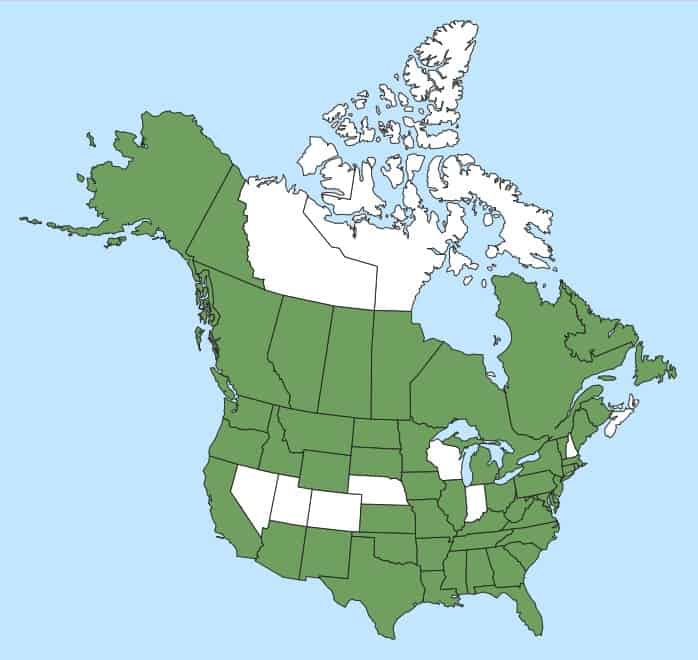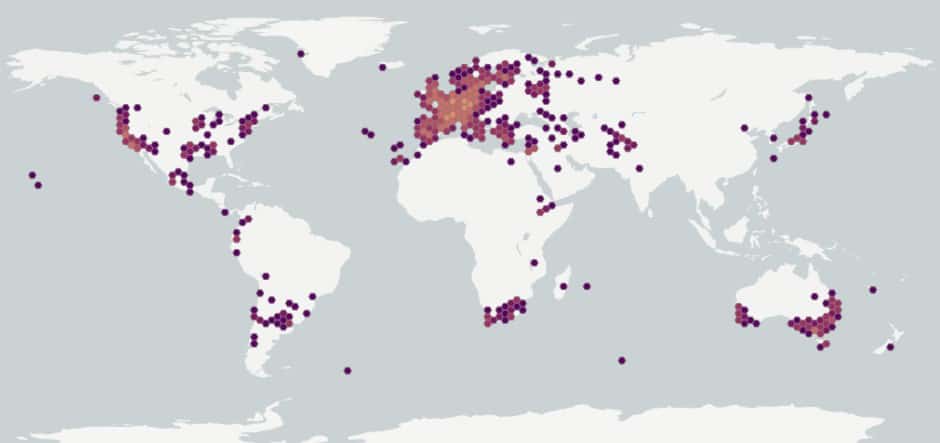Lolium temulentum
Explore More :
Explore plus :
Overview
Aperçu
Regulation :
Remarques Réglementation:
- Quarantine lists of countries e.g. China *may be updated without notice
Regulation Notes:
On quarantine lists of countries e.g. China*.
*Quarantine lists of countries may be updated without notice.
Distribution :
Répartition :
This species is probably native to the Mediterranean region. It is widely naturalized around the world, including the United States (USDA-ARS 2017, USDA-NRCS 2017).
Habitat and Crop Association :
Habitat et Cultures Associées :
Darnel grows in cultivated fields, roadsides and disturbed areas (Darbyshire 2003). It is mainly a weed of wheat and small grain cereals, but can affect a wide variety of crops, particularly winter crops (CABI 2017).
Economic Use, cultivation area, and Weed Association :
Utilisation économique, zone de culture et association de mauvaises herbes :
Duration of Life Cycle :
Durée du cycle vital:
Annual
Dispersal Unit Type :
Type d’unité de dispersion :
Floret
General Information
RENSEIGNEMENTS GÉNÉRAUX
A competitive weed with fibrous roots (CABI 2017). Its seeds are difficult to separate from wheat and other small grain crops due to their similar size and weight (CABI 2017). The seeds are often infected by a fungus, which has poisonous effects on livestock when grazed and on humans when consumed in flour (eFloras 2017).
.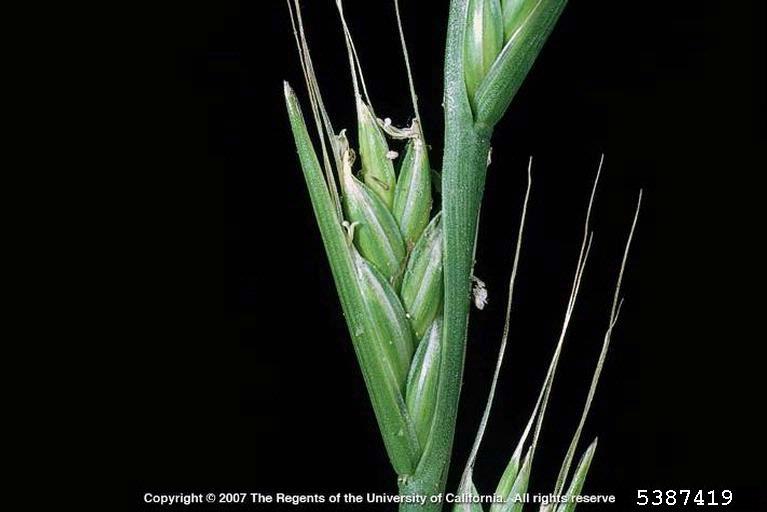
Lolium temulentum spikelet (Joseph M. DiTomaso, University of California – Davis, Bugwood.org)
Identification
Identification
-
Floret
Size
- Floret length: 5.3 – 9.1 mm (average: 7.4 mm); width: 1.9 – 3.4 mm (average: 2.5 mm)
- Awn length: 3.4 – 15.4 mm (average: 9.3 mm)
Shape
- Floret oval to oblong, compressed
Surface Texture
- Floret surface is granular
- The palea is prominently wrinkled
- Palea teeth are wide, giving the appearance of a saw blade
Colour
- Floret surface is dull, straw yellow
Other Features
- Floret has a single straight awn from the top of the lemma
- Rachilla is flat and lies close to the palea
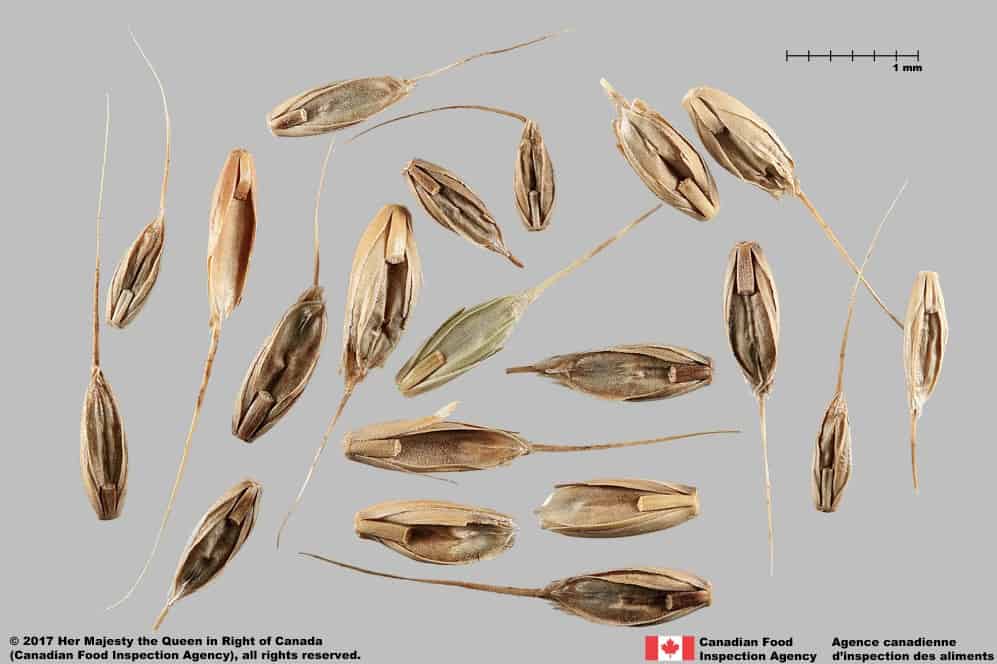
Darnel (Lolium temulentum) florets

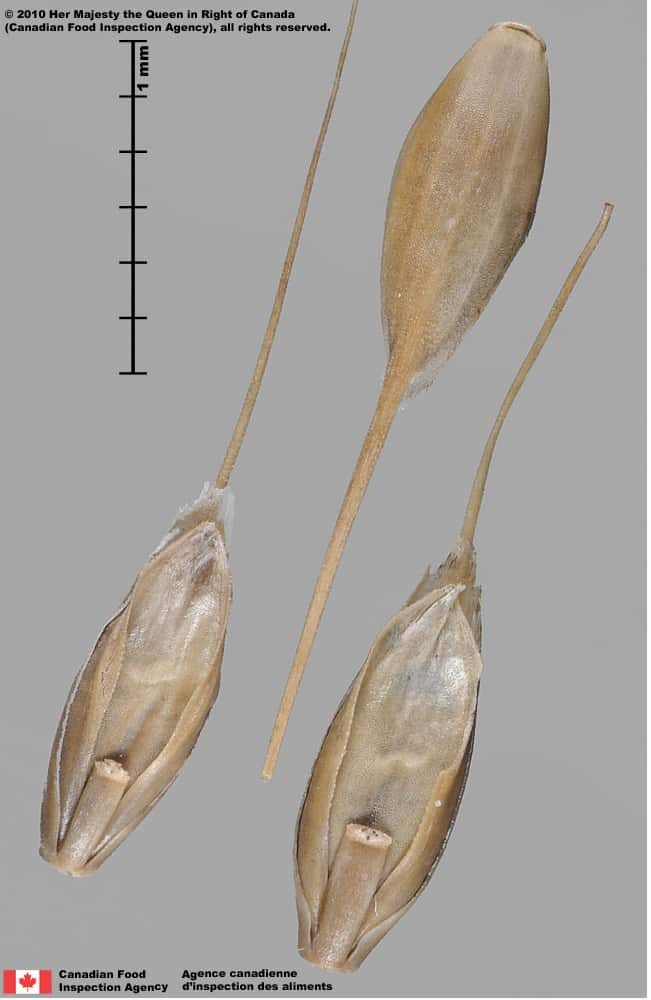
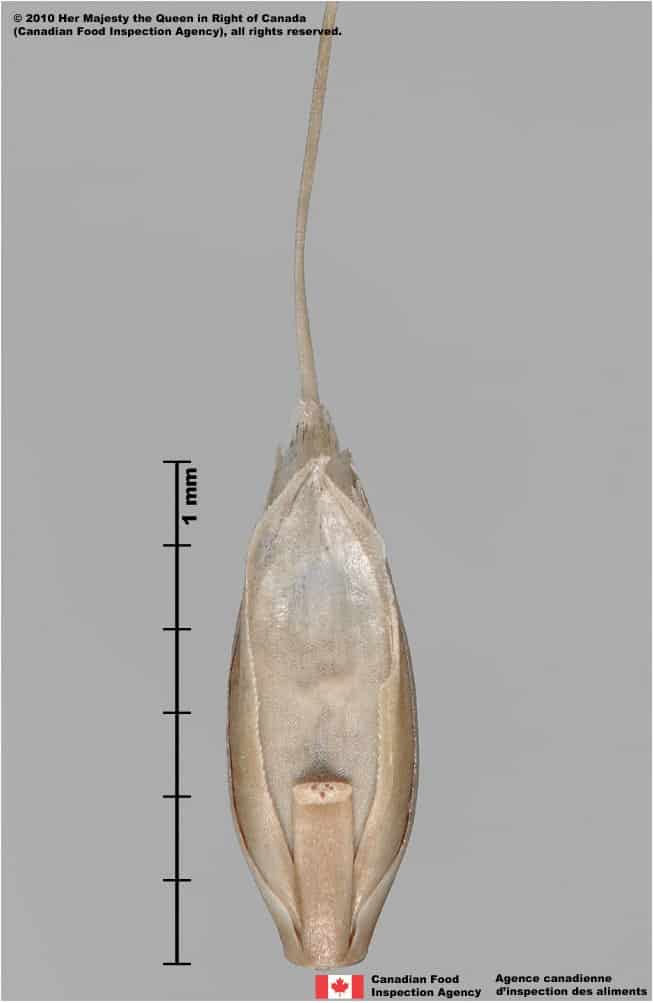
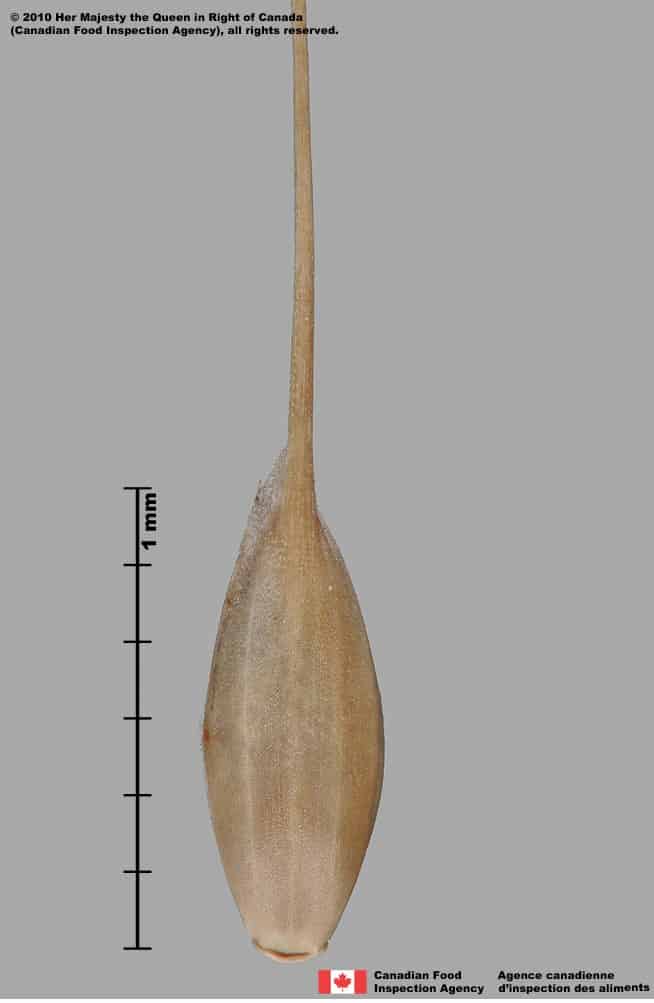
Identification Tips
CONSEILS POUR L’IDENTIFICATION
Additional Botany Information
AUTRES RENSEIGNEMENTS BOTANIQUES
Similar Species
ESPÈCES SEMBLABLES
Similar species are based on a study of seed morphology of various species, and those with similar dispersal units are identified. The study is limited by physical specimen and literature availability at the time of examination, and possibly impacted by the subjectivity of the authors based on their knowledge and experience. Providing similar species information for seed identification is to make users aware of similarities that could possibly result in misidentification.
Lolium persicum (persian darnel)
Lolium persicum florets are a similar oblong shape, awned lemma, straw yellow colour and granular surface as poison darnel.
Lolium persicum florets are generally longer (length range: 7.0 – 11.8 mm) do not have a wrinkled palea and the palea teeth are thin compared to poison darnel.
Click to select species
Cliquez pour sélectionner les espèces
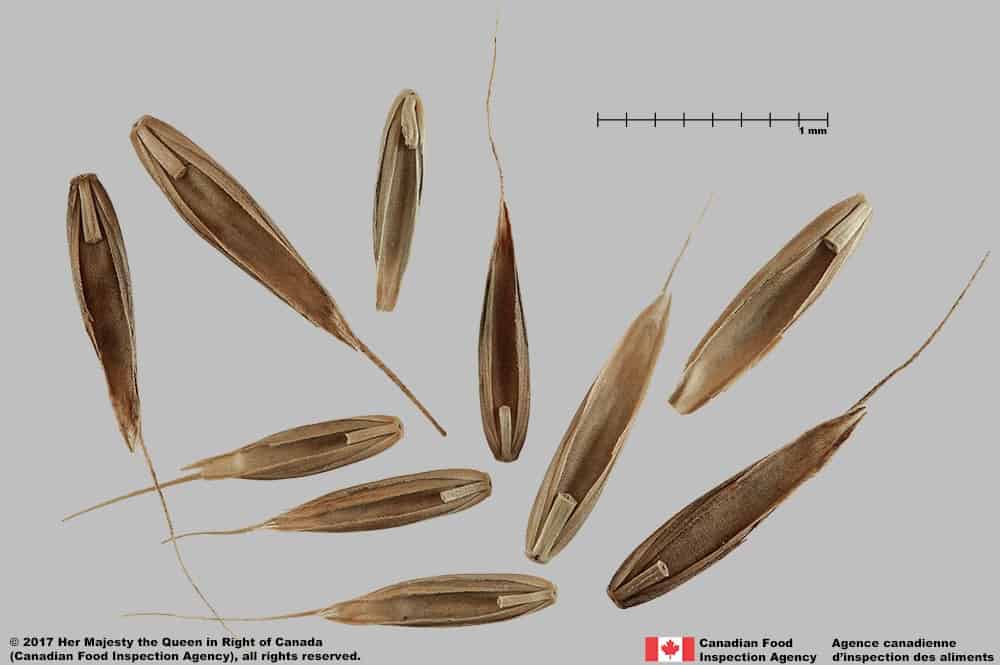
Lolium persicum
Comparison Window
Fenêtre de comparaison
MAIN SPECIES
ESPÈCES PRINCIPALES
Lolium temulentum

Lolium temulentum
Poaceae
Darnel (Lolium temulentum) florets
MAIN SPECIES
ESPÈCES PRINCIPALES
Lolium temulentum

Lolium temulentum
Poaceae
Darnel (Lolium temulentum) florets
MAIN SPECIES
ESPÈCES PRINCIPALES
Lolium temulentum

Lolium temulentum
Poaceae
Darnel (Lolium temulentum) floret; lemma view
MAIN SPECIES
ESPÈCES PRINCIPALES
Lolium temulentum

Lolium temulentum
Poaceae
Darnel (Lolium temulentum) floret; palea view
SIMILAR SPECIES
ESPÈCES SEMBLABLES
Lolium persicum

Lolium persicum
Poaceae
Persian darnel (Lolium persicum) florets
SIMILAR SPECIES
ESPÈCES SEMBLABLES
Lolium persicum
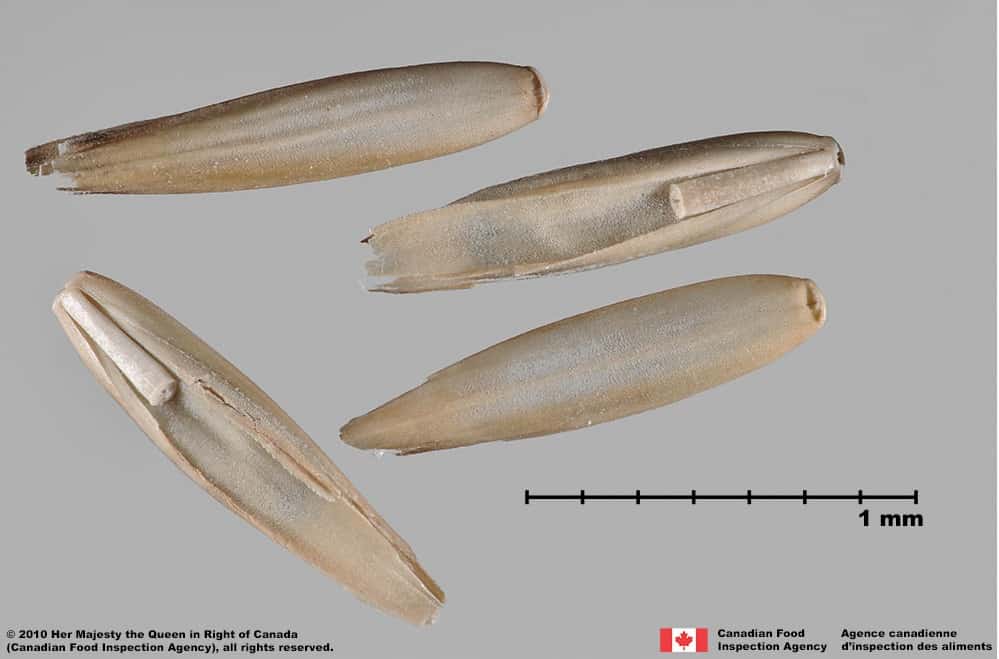
Lolium persicum
Poaceae
Persian darnel (Lolium persicum) florets
SIMILAR SPECIES
ESPÈCES SEMBLABLES
Lolium persicum
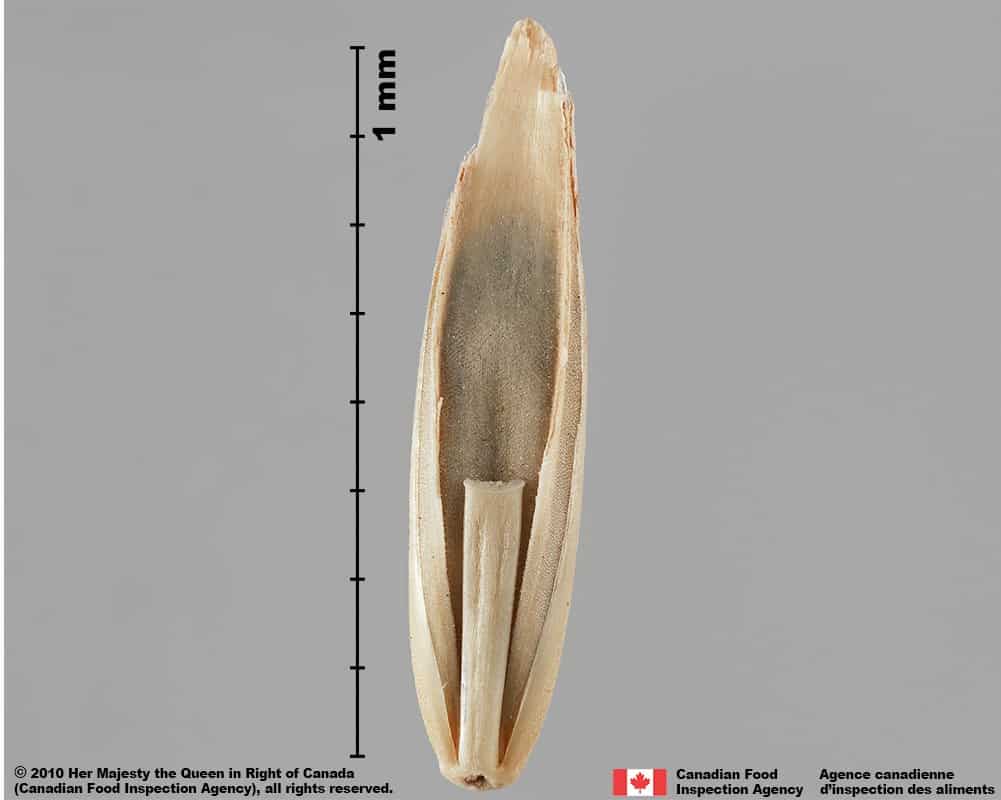
Lolium persicum
Poaceae
Persian darnel (Lolium persicum) floret, palea view
SIMILAR SPECIES
ESPÈCES SEMBLABLES
Lolium persicum
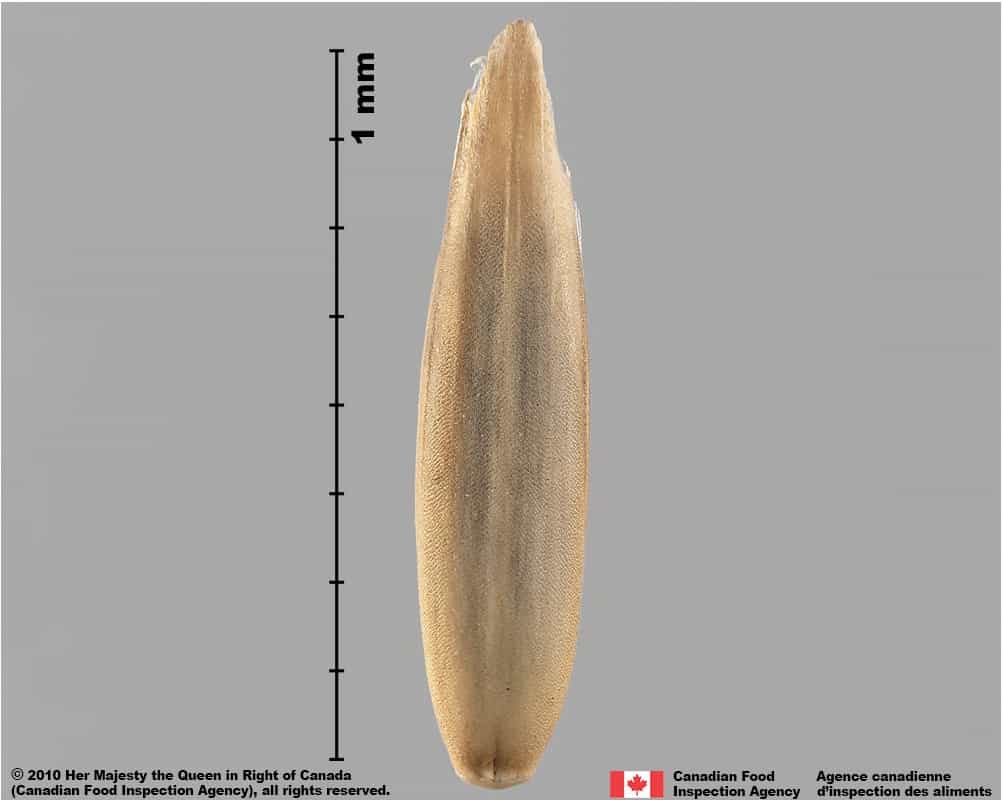
Lolium persicum
Poaceae
Persian darnel (Lolium persicum) floret, lemma view
SIMILAR SPECIES
ESPÈCES SEMBLABLES
Lolium persicum
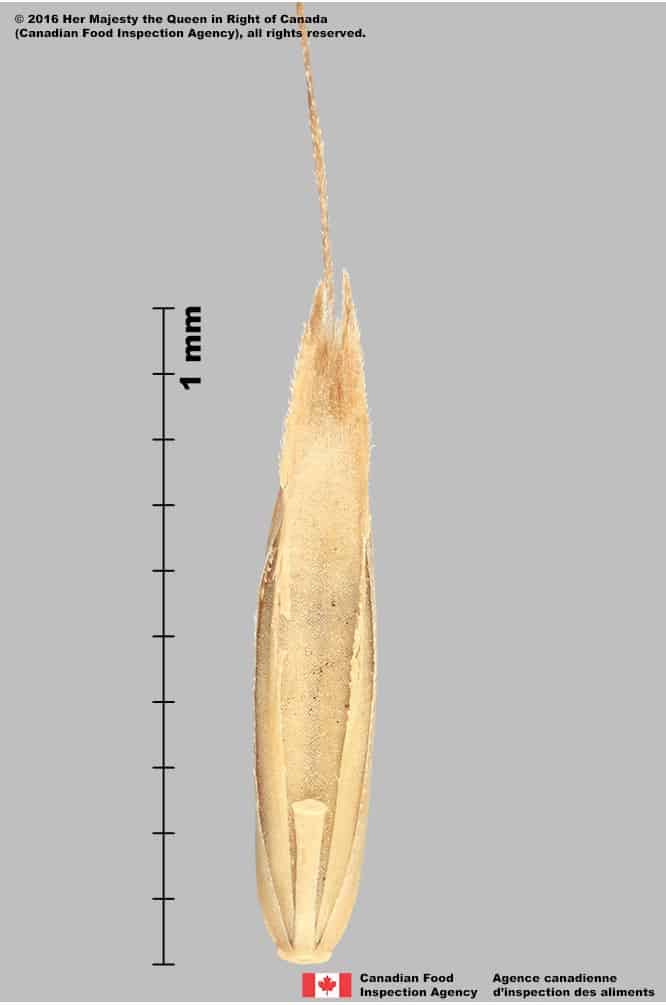
Lolium persicum
Poaceae
Persian darnel (Lolium persicum) floret, palea view
SIMILAR SPECIES
ESPÈCES SEMBLABLES
Lolium persicum
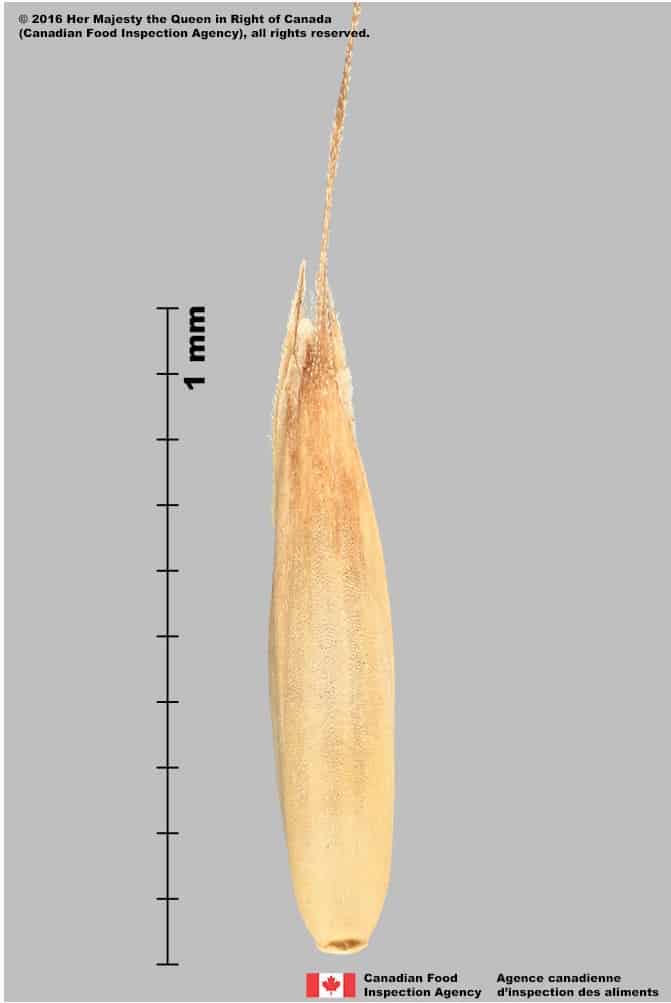
Lolium persicum
Poaceae
Persian darnel (Lolium persicum) floret, lemma view
SIMILAR SPECIES
ESPÈCES SEMBLABLES
Lolium persicum
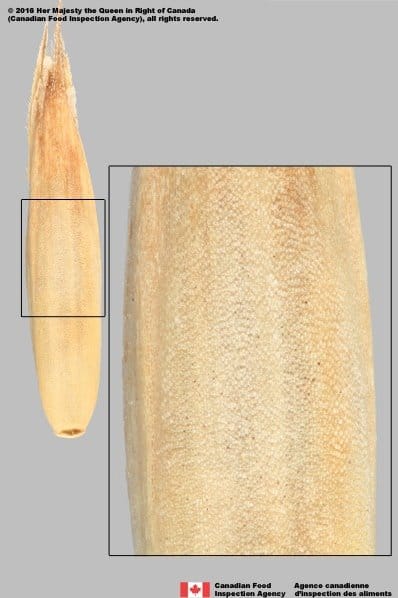
Lolium persicum
Poaceae
Persian darnel (Lolium persicum) the granular surface of the floret, lemma view
Need ID Help?
Besoin d’aide pour l’identification?
Reference(s)
Référence(s)
Centre for Agriculture and Bioscience International (CABI). 2017. Invasive Species Compendium, CAB International, Wallingford, UK. https://www.cabidigitallibrary.org/journal/cabicompendium Accessed April 25, 2017.
Darbyshire, S. J. 2003. Inventory of Canadian Agricultural Weeds. Agriculture and Agri-Food Canada, Research Branch. Ottawa, ON.
eFloras. 2017. Electronic Floras. Missouri Botanical Garden, St. Louis, MO & Harvard University Herbaria, Cambridge, MA., http://www.efloras.org Accessed August 25, 2017.
Flora of North America (FNA) Editorial Committee, eds. 1993+. Flora of North America North of Mexico [Online]. 22+ vols. New York and Oxford. Accessed December 29, 2022.
Global Biodiversity Information Facility (GBIF) Secretariat. 2022. https://doi.org/10.15468/39omei Accessed via https://www.gbif.org/species/2706242 Accessed December 29, 2022.
U.S. Department of Agriculture-Agricultural Research Services (USDA-ARS). 2017. Germplasm Resources Information Network (GRIN), https://npgsweb.ars-grin.gov/gringlobal/taxon/taxonomysearch Accessed April 25, 2017.
U.S. Department of Agriculture-Natural Resources Conservation Service (USDA-NRCS). 2017. The PLANTS Database. National Plant Data Team, Greensboro, NC USA. https://plants.usda.gov/home Accessed April 25, 2017.



